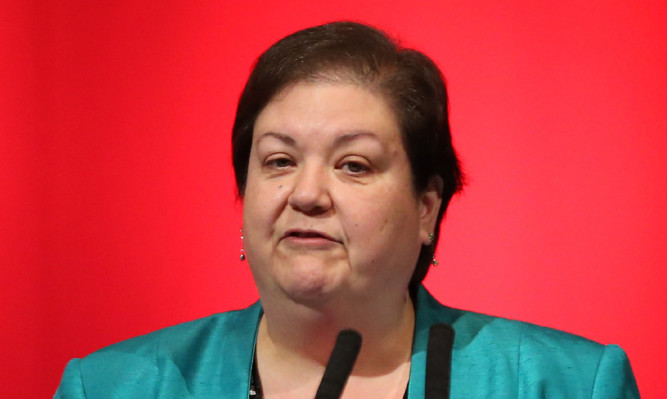Scottish Labour’s income tax plans would raise the most additional revenue by the final year of the next parliament, new analysis by a think-tank has revealed.
The party would raise between £1.1 billion and £1.2 billion by 2020/21 over and above what it would raise if it followed UK Government tax plans, according to the Institute for Public Policy Research (IPPR) Scotland.
Its research found SNP income tax plans would raise £300 million, with the Liberal Democrats raising an additional £750 million, the Greens between £600 million and £950 million, and the Scottish Conservatives zero.
In March, the think-tank calculated the next Scottish government will face a £2 billion annual spending gap by 2020.
Its latest research compares tax proposals already announced by the parties to what would be raised if they followed UK tax plans, assuming the UK Government raises the higher rate threshold to £50,000 by 2020/21 as planned.
Scottish Labour and the Liberal Democrats want to increase income tax by 1p, while Labour would also raise the additional rate for top earners to 50p.
The SNP has pledged to freeze tax rates, and will not implement UK Government changes to the threshold at which people begin paying the higher 40% tax rate.
The party has also promised to raise the personal allowance to £12,750 by 2020/21 by setting a zero rate – a move which the IPPR says will cost £130 million a year.
The Tories will match UK Government tax plans and therefore will raise no additional revenue, the IPPR said, while the Greens have announced plans to create new tax bands and increase the additional rate to 60%.
The IPPR analysis also looks at which households in Scotland would win and lose, and by how much, under the Scottish parties’ plans compared with UK Government tax plans, including its current proposals for a £45k higher rate threshold in the rest of the UK.
Under Labour’s plans, the richest households in Scotland could lose up to £2,850 annually, while the poorest would lose £20 or less.
Under the SNP’s proposals, the richest would lose around £200, with poorest households seeing gains of £10 or less.
Under the Tories – who would go ahead with UK Government plans for a £50k higher threshold – the richest would gain £390, with no gains for the poorest two-fifths of households.
The richest could be hit the hardest under the Greens’ plans, losing up to £4,270 annually.
Russell Gunson, director of IPPR Scotland, said: “Our analysis is the first time we’ve been able to show how much each of the parties are seeking to raise in additional tax revenue.
“With billions of pounds of spending cuts and benefits coming to Scotland over the next few years, the balance of tax rises and spending cuts proposed by the parties needs to be front and centre of the plans they will take to the country to vote on next month.
“Ahead of manifestos being published over the course of this month, the parties need to be clear with voters as to how much, if any, tax they hope to raise – and what scale of public spending cuts and reform of our public services they’re proposing.”
The parties leapt on the report’s findings, with each claiming it supported their policies.
Scottish Labour public services spokeswoman Jackie Baillie said: “This expert intervention shows that only Labour has a credible plan to use the powers to stop the cuts to schools and public services.
“The SNP’s refusal to tax the richest will see the poorest lose out.
“After a career of calling for more powers to stop austerity Nicola Sturgeon has bottled it, and the price of that means hundreds of millions of pounds of cuts to schools and local services. The SNP must now spell out where their cuts will fall.”
SNP Finance Secretary John Swinney said: “This report shows that it is only the SNP that are putting forward balanced, reasonable and fair tax proposals that will support public services like our NHS whilst protecting households budgets.”
He added that it showed “Labour’s plans are a tax grab on some of the least well off in our society”, while the Tories “are continuing to hand out tax breaks to the rich at the same time as they are cutting public services”.
Liberal Democrat leader Willie Rennie said the report showed its tax plans are “progressive”, while Scottish Greens co-convener Patrick Harvie said it demonstrated its proposals are “far bolder than the SNP’s”, and tackle inequality, “while Labour’s do not”.
